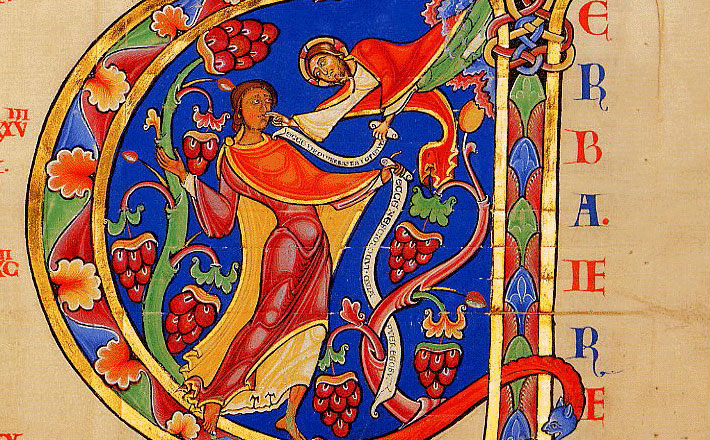Commentary on Matthew 16:21-28
How does a revolutionary leader prepare a colonized people for the death of their Messiah?
Jesus bluntly informs his disciples that some of their influential religious or community leaders (the elders, chief priest and scribes) will inflict great violence upon him and kill him (Matthew 16:21). The chief priest and elders will conspire with Caiaphas, the high priest, to surreptitiously arrest and kill Jesus (26:3-5). And Judas, a member of Jesus’ inner circle, together with a sword-and-club-carrying mob, will join the conspiracy (26:47).
“Religion” has never been free of political intrigue and violence. Even religious men and women mesmerized by power and privilege will annihilate persons who in any way threaten to diminish their position and advantage. Perhaps the chief priest, elders, and high priest, despite also being colonized subjects of the Roman Empire, have positioned themselves to partake of the spoils and privileges of empire. Perhaps they have convinced enough of the masses of ordinary poor people to act contrary to their own best interest and to join in a cause that favors only the rich and powerful.
Jesus as the king of the Jews or God’s Christ/Messiah (“anointed one”) is obviously a threat to the status quo. His mere existence as an infant constituted a threat to King Herod, Rome’s client king (Matthew 2), and to the extent that Herod was willing to murder all children under two years old in and around Bethlehem to assure the annihilation of the one who might someday replace him (or his progeny) as Rome’s puppet with privileges. Freedom is sometimes forfeited by even the oppressed for privileges and advantages of empire. Herod could rely on the chief priest and scribes to cooperate with his murderous agenda (2:4). Religion is political (i.e., hierarchical, at least) and the political is religious.
Sometimes even members of the intimate circle of a revolutionary band don’t yet know what it means to be a revolutionary. The colonized Jesus envisions a basileia (often translated kingdom) that prioritizes justice/righteousness (Matthew 6:33; 23:23), promotes neighbor love that is defined and motivated by God-love and self-love (22:34-40), is not charmed by wealth, position and authority (4:1-16), is not dreaming of becoming Rome’s puppet king or of occupying an earthly throne, and is anticipating an imminent disgraceful death.1 The late West-Coast rapper Tupac Shakur, envisioning himself as a revolutionary, declared, “I’m a dead man.” Not able to inhabit that space with Jesus, Peter scolds him. Pulling Jesus aside, Peter chastises him, as if Jesus has lost faith. Many religious folks will not or cannot abide sisters and brothers who demonstrate anything but faith in their talk. Christians sometimes can’t mourn any impending or actual loss without being accused of having lost their faith. Grief and mourning are natural human reactions to loss. God created us to be human and declared our humanness to be good.
Peter has assumed the role of adversary, or Satan, in light of Jesus’ revelation of his fate as a revolutionary. Raquel St. Clair Lettsome argues that Jesus died as a consequence of his life and ministry.2 Jesus accuses Peter of being a stumbling block (not a rock) and of focusing on “human things” rather than “divine things” (Matthew 16:22-23). Returning to addressing all of his disciples, Jesus admonishes them: “If any want to become my followers, let them deny themselves and take up their cross and follow me.” This is a new teaching in light of Jesus’ imminent death. If Jesus’ disciples choose to continue following him, they must be willing to deny themselves (and not Jesus, as Peter will do in Matthew 26) and be able to envision the fate of the cross. Judas had it backwards; he thought he could pursue money and power and then follow in Jesus’ steps. Judas didn’t believe that Jesus would really lead them to the cross (Matthew 26:14-16, 47; 27:3-10). Jesus taught that “the one who wants to save his life will lose it, and he who loses his life for my sake will find it. For what will it profit him if he gains the whole world but forfeits his life? Or what will he give in return for his life?” (Matthew 16:25-26). These words are reminiscent of Jesus’ temptation in the wilderness: The devil dared Jesus to save his life (by turning stones into bread so that he could eat), lose his life (to cast himself down off the highest point of the Temple mount and God’s angels would save him), and to gain the world while forfeiting his life (to acquire all the kingdoms of the world in exchange for worshiping the Satan). Before beginning his public ministry Jesus settled the question of his priorities; he sided with the poor who do not have the power to turn stones into bread; he refused to trivialize life and sided with those who are defenseless from the daily onslaught of violence; and he turned down ill-gotten material prosperity and power predicated on allegiances and partnerships with evil and oppressive forces.
Perhaps Jesus is also saying that if one thinks she has it all figured out (like Peter), she does not; that when we think our theology and faith is tight, right, and infallible, it just might be oppressive and death-dealing. Peter declares that his loyalty to Jesus will withstand the threat of death; that though the crowds forsake Jesus, he will not. We sometimes prefer to see Peter as weak, rather than as human. Perhaps Peter saw himself as superhuman. I don’t think Jesus calls us to deny our humanity but to commit to following him while fully accepting how vulnerable our humanity will be if we choose to be revolutionaries. Jesus was willing to be God’s revolutionary Messiah knowing the violence that could be done to his body as a consequence of pursuing justice, love and peace instead of the privileges of empire.
Notes
1 See Mitzi J. Smith and Lalitha Jayachitra, Teaching All Nations. Interrogating the Matthean Great Commission (Minneapolis: Fortress, 2014).
2 Raquel St. Clair, Call and Consequences. A Womanist Reading of Mark (Minneapolis: Fortress, 2008).


September 3, 2017